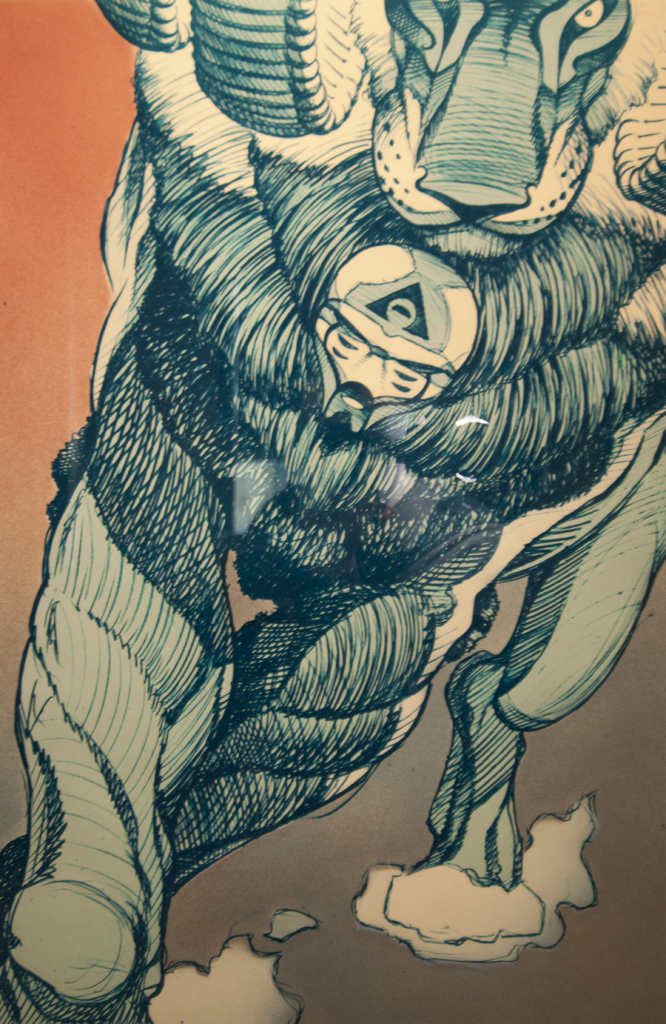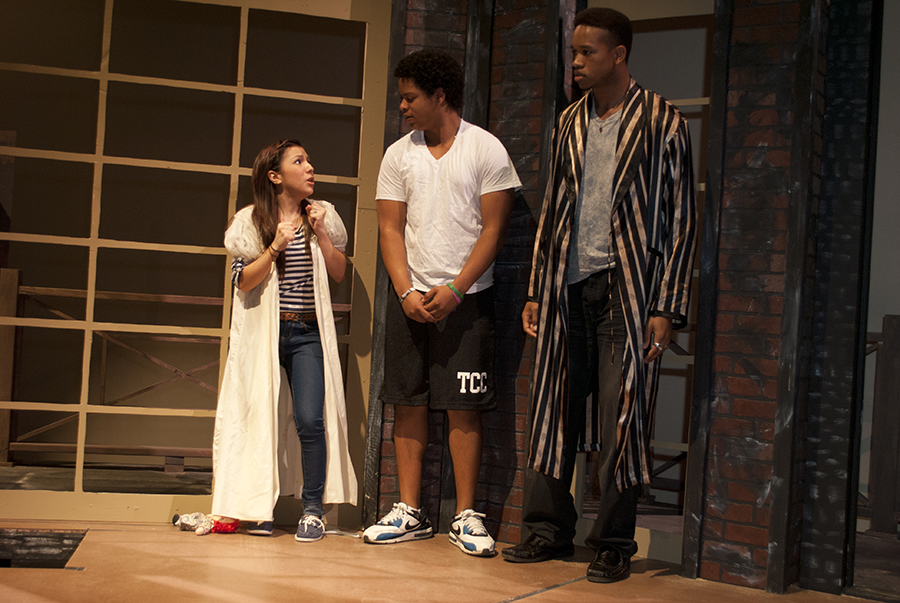By Kelli Henderson/entertainment editor

Photos by Justin Gladney/The Collegian
The Northeast Playhouse production of William Shakespeare’s Richard III is not the average Shakespeare play. The NE version includes modern taboos, vivid colors and bebop soundtracks.
Richard III will be performed at 7 p.m. Feb. 29-March 3 and at 2 p.m. March 3 in the NFAB Theater.
The play follows the rise to power and short reign of England’s Richard III, who does anything he can to get to the throne. He uses and abuses those around him until they have done what he needs and then throws them away.
Director and drama associate professor Stephen Thomas said the department’s yearly Shakespeare production involves many different disciplines.

Photos by Justin Gladney/The Collegian
“There is theater. The music is done by the music department, and visual art department does all the graphic images,” he said. “The dance department choreographs part of it. Sometimes, we have the history department involved in it and the English department involved in it. We work together, and we try to find a story that would be fun and interesting for us to all work on.”
The rendition of Richard that Thomas went for was a modernized world but with the classic Shakespeare lines. The character, which has traditionally been afflicted with a deformed arm or humpback, here has a heroin addiction and a soundtrack and sets to match.
“All the music and scenery is through his eyes,” Thomas said. “We use jazz bebop music. We think that’s the kind of music he would listen to. It’s intricate and out there.”
Because it is Shakespeare, Thomas said he needed a cast who wouldn’t let its acting hide the language and the true meaning of this historic tragedy.
“You look for people who can speak the language clearly and who won’t try to let their bad habits that they’ve learned from acting class get in the way of Shakespeare,” he said. “It’s a different form.”
NE student Priscilla Hatcher plays Lady Ann, a woman seduced by Richard after he kills her husband and father-in-law to gain the throne. Hatcher said this is different than anything she’s done in her five previous TCC plays.
“I had to do some research on the language, on how to read it because there is a certain pattern and rhythm. And also a little bit of research on heroin addicts and the effects it has on your body,” she said.
Brandon Wimmer plays Buckingham, Richard’s second in command and a strategist who does unexpected things. Wimmer said the darkness of this play, something he’s never seen Thomas do before, interested him enough to try out for the role.

Photos by Justin Gladney/The Collegian
“Well, obviously, I am not the best physical specimen, and that’s what you normally see in a Shakespearean lead,” he said. “You normally see Romeo being the stricken, chiseled person, but in Richard, the hero is the villain, and the villain ain’t pretty.”
To memorize his lines, Wimmer said he stands in front of a punching bag and feels the flow of the Shakespearean language while kickboxing. He also learned more about the story as well, he said.
“I did a lot of historical research on Buckingham, and I wanted to do this play since I was 7 years old,” he said. “So I’ve had a bunch of stuff set aside since I was a kid.”
Hatcher said her role as Lady Ann is unlike characters she normally plays. Lady Ann is emotional and must express personal feelings to a crowd of strangers, she said.
“Every time I come onstage, especially in my opening scene with Richard — it’s a very epic scene in this play — I have to be able to be vulnerable on stage to where I completely fall apart and be an emotional mess, basically,” she said. “I have to let myself do that, and that’s pretty hard to do. It’s been quite a challenge.”
Portraying the oldest character in the play is no walk in the park either, said NE student Rachel DeLeon, who plays Queen Margaret. Having this as her second Shakespeare play, it isn’t the lines or language giving her trouble, it’s the age of her character.
“I really had to put myself in that mind frame of how an old woman is or to have that anger and revenge,” she said.
It is hard to portray a lead character who is high on drugs, Wimmer said.
“What is the point of view of a heroin addict? And who’s really the hero?” he said. “Never doubt the underdog, the fact that sometimes hope can come from the most unlikely places. And maybe there’s just a little too much darkness in all of us.”

























